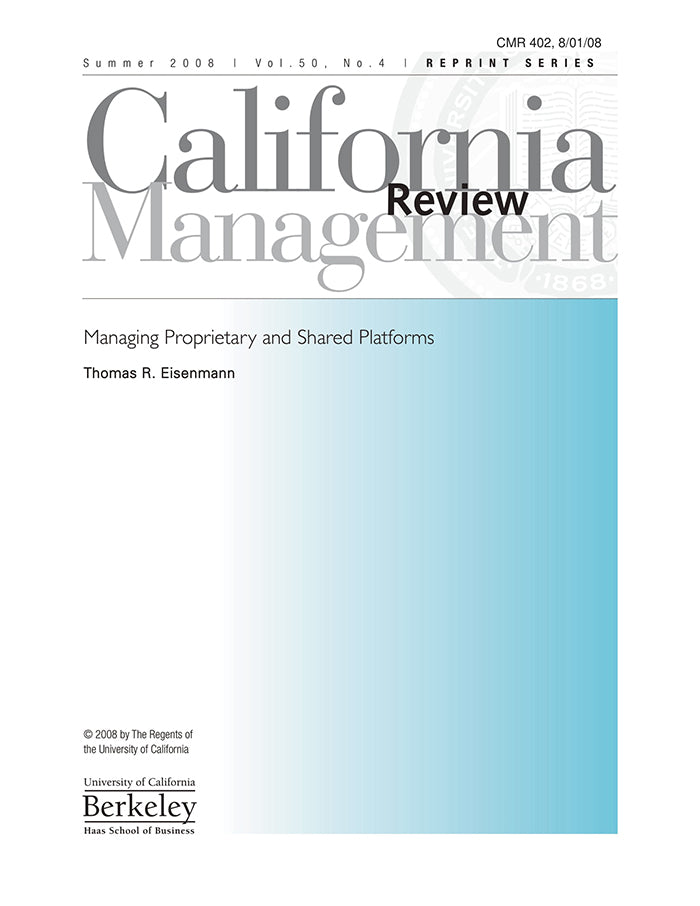Managing Proprietary and Shared Platforms
受取状況を読み込めませんでした
In a platform-mediated network, users rely on a common platform (provided by one or more intermediaries) that encompasses infrastructure and rules required by users to transact with each other. A fundamental design decision for firms that aspire to develop platform-mediated networks is whether to preserve proprietary control or share their platform with rivals. A proprietary platform has a single provider that solely controls its technology (for example, Federal Express, Apple Macintosh, or Google). With a shared platform such as Visa, DVD, or Linux, multiple firms collaborate in developing the platform's technology and then compete in offering users different but compatible versions of the platform. This article examines factors that favor proprietary versus shared models when designing platforms and then explains how management challenges differ for proprietary and shared platform providers when mobilizing
【書誌情報】
ページ数:24ページ
サイズ:A4
商品番号:HBSP-CMR402
発行日:2008/8/1
登録日:2011/7/29


